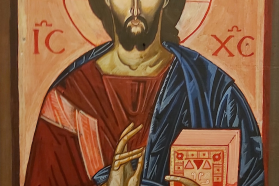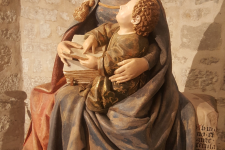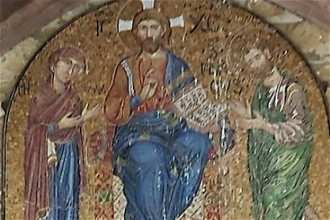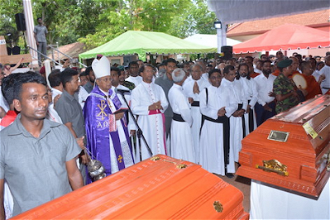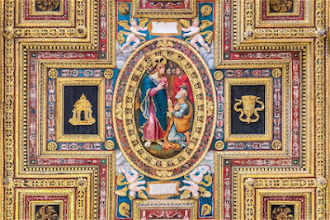Sunday Reflection with Fr Robin Gibbons - 17 January 2021
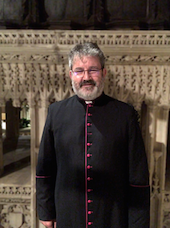
Canon Robin Gibbons
Second Sunday in Ordinary Time
Frequently in this odd time of Lockdown I have switched off the TV and other forms of media, fed up with the incessant analysis of everything to do with Covid -9, the Government, and of course the great obsession with Trump. None of these things I can honestly say have actually enriched my life, if anything they add to the confusion, anxiety and gloom ever present about me. Maybe you are stronger than I can be, but I have felt, as I have so often written in these reflections, that as a Christian community we are missing the mark, not grasping a new opportunity being laid bare before us.
The Responsorial Psalm today has a haunting three verses, which I often find going round in my head, at least two bits of it:
'You delight not in sacrifice and offerings,
but in an open ear.
You do not ask for holocaust and victim.
Then I said, "See, I have come."
In the scroll of the book it stands written of me:
"I delight to do your will, O my God;
your instruction lies deep within me."'(Ps 40:7-9)
I link these verses to my faith journey, not only in the obvious literal way of being called by God, as in the first reading about Samuel, but more about the images and symbols of that story which call me to look at this moment in history and make the psalms words my living prayer. I think that in so many areas of life we are tired of listening to leaders telling us what we should or should not do, faced with a Pandemic and a virus that does not discriminate, faced with the necessity of saving as many lives as we can, particularly in our society, of the elderly especially those sent off into care homes, and the really vulnerable, we have heard some very mixed messages, we need to tune in to that voice of God!
Personally I have long ceased to be bothered about churches being open, because of distance and a shift in my own Church regulations, I cannot get to any service, so like many I share in that deprivation of not being able to celebrate with others. Eastern Byzantine Catholic tradition follows the ancient Eastern theology of not ever allowing private solo celebrations by a priest on his own, so that for me is out! Into the gap I have begun to pray differently, do small domestic acts of liturgy of work and relaxation, and look for things that will allow me a ministry of intercession and care, to reach out and share with those, like me, cut off from normality.
I'm amazed at how little of Church History people know, we have been here before, as somebody trained in the Rule of Benedict I remind myself that was written at a time of complete chaos in the 5th and 6th c, with the collapse of civilisation through invasion and destruction, where places were laid waste! In fact this country has been under interdict by Innocent III in the reign of King John, between 23 March 1208 to 2 July 1214, no Mass, no sacraments except simple baptisms, and locked church doors except for prayer on big feasts. The Black Death (1347-1352 CE) was seen as a chastisement by God, communities were so decimated nobody celebrated much. We need to hear the voices of those who lived through these times and discover what they may tell us.
Perhaps the greatest point is that faith survived, and not through any great endeavour of the leadership. Secondly negative things created division. What followed on from the Black Death lead to the Reformation as opportunities for change were not followed through and the Church declined. Yet there were voices who did not follow the routes of penance, chastising, punishments, mob rule and persecution of targeted groups like the Jews, but looked further to seek solutions in order to bring about change and it is from them that came, not the ''end of the world' but the Renaissance.
Isn't that what we need, want and seek? Samuel is perhaps our model now! Surrounded by the trappings and structures of faith, Temple, the Ark, and the priest Eli, Samuel at first does not 'hear' God, but thinks it is the voice of authority and tradition. It is only when Eli wakes out of his religious slumber and recognises that true voice which we too may hear, and tells Samuel to listen, that the real transformation begins. For it is only when we really let go, really learn to trust in the One we so often pray to, that the encounter starts. May we find that in our moments of prayer at this time, may we as living lamps of the Spirit, bodily Temples of the Holy One wherever we are, say and mean it:" Speak, LORD, for your servant is listening." Amen, Amen.
Lectio Divina
Extract from a short story in The New Yorker by Stephen Millhauser, Dec 3, 2012
A Voice In The Dark
…'He doesn't yet know why the Lord is calling him, but he knows how to answer, for Eli has told him exactly what to say: "Speak, Lord; for thy servant heareth." Samuel resists, the words refuse to come, then he says it aloud: "Speak; for thy servant heareth." He hears his words clearly in the dark: "Speak; for thy servant heareth." There is no doubt: he has said "Speak" and not "Speak, Lord," as he was instructed to do. Was he so frightened of uttering the sacred name? He feels a rush of self-reproach, before commanding himself to be still and listen. He lies motionless, alert all over his body, fiercely calm. He has served in the temple of Shiloh ever since early childhood, but nothing has prepared him for this moment. He does not try to imagine what the Lord will tell him, but he readies himself to remember every word, in the order of speaking. Eli is awake, waiting in the next chamber. Eli will ask him what the Lord has said. Though the voice of the Lord is strong, Samuel knows it cannot be heard by Eli, and not because Eli is too far away to hear. The voice is for him alone. He knows this without arrogance. And he will remember. He has a good memory, he's proud of his memory, though he watches over his pride so that it doesn't become vanity. Words read to him or heard by him remain unchanged inside him. It has always been that way. Now the Lord speaks, and Samuel listens. There is nothing in the world but these words'.
Moravian Hymn
James Drummond Burns
Published 1854
Hushed was the evening hymn..
Vv 3,4,5
O give me Samuel's ear!
The open ear, O Lord,
alive and quick to hear
each whisper of thy word;
like him to answer at thy call,
and to obey thee first of all.
O give me Samuel's heart!
A lowly heart that waits
where in thy house thou art,
or watches at thy gates
by day and night, a heart that still
moves at the breathing of thy will.
O give me Samuel's mind!
A sweet, unmurm'ring faith,
obedient and resigned
to thee in life and death,
that I may read with childlike eyes
truths that are hidden from the wise.
Fr Robin is an Eastern Rite Catholic Chaplain for Melkites in the UK. He is also an Ecumenical Canon of Christ Church Cathedral, Oxford. You can follow him on Twitter: @RobinGibbons2



